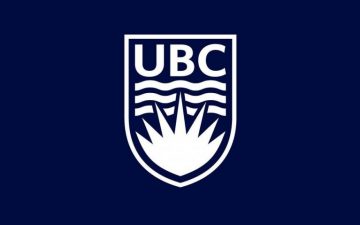 To the members of the UBC Department of Medicine community:
To the members of the UBC Department of Medicine community:
Our hearts are heavy as we mark the one-year anniversary of the Tk’emlúps te Secwépemc First Nation announcing the discovery of the remains of 215 children in unmarked graves at the former Kamloops Indian Residential School.
The discovery of these burial sites confirmed the truth that residential school survivors have long known, that the abuse and loss of life was much greater than previously acknowledged. Over the past year, multiple other residential school sites, in British Columbia and across Canada, have shared findings of unmarked burials, missing children and exposed the need to address the continuing legacy of the residential schools on families, First Nations, Metis and Inuit communities, and all of us.
We stand in support of Indigenous people and communities working to expose the full truth of the Indian residential school system and with those calling for justice for these children who did not return home. Of those who did not return home, some ran away, were lost forever, or died while at the school. Those who did return must be recognized as having survived these atrocities.
We offer our support to all those who have been traumatized by the legacy of residential schools and are re-traumatized each time further light is shed on the truth of what happened. Information on healing and wellness resources is available on the UBC Indian Residential School History and Dialogue Centre website.
The former Kamloops school was at one time the largest residential school in Canada. Children came from communities throughout BC, including many from member communities of the Syilx Okanagan Nation, in whose traditional, ancestral and unceded territory UBC’s Okanagan campus is situated, and Musqueam, in whose traditional, ancestral and unceded territory UBC’s Vancouver campus is situated.
We join the Syilx Okanagan Nation this week in calling for May 27 to be recognized by all people and for support for Indian residential school survivors everywhere. We will continue to support initiatives in partnership with Syilx Okanagan and other Indigenous peoples to revitalize Indigenous languages and cultures which residential schools forcibly sought to destroy.
As was noted in the apology issued on the occasion of the opening of the Indian Residential School History and Dialogue Centre in 2018, the university bears responsibility for participating in a system that oppressed and excluded Indigenous people and for failing to confront a heinous history for too long. Since then, we have sought to understand the depth of our involvement and opportunities to confront that history.
The UBC Vancouver Senate is reviewing the honorary degree conferred in 1986 to John Fergus O’Grady, one-time principal of the Kamloops Indian Residential School. Earlier this week, the Vancouver Senate Tributes Committee provided an update on that process, including a special sub-committee’s recommendation that the Senate rescind its approval of the Honorary Degree awarded to the late John Fergus O’Grady. More information on the process, the opportunity to participate, and efforts to review and address concerns about other honorary degree holders with backgrounds of concern can be found in a statement from the Tributes Committee.
The Indian residential school system and the many colonial policies and laws that removed children and forced them to attend the schools needs to be fully understood, and as records and new information comes to light, we must reflect on this in the context of the breach of fundamental human rights, including genocide.
The children who did not return home from the Kamloops Indian Residential School, whom we honour and remember today, as with those who attended any of the residential or day schools, should have had the opportunity to live a full life, surrounded by community, culture, identity and safety. Today, they should be valued Elders and keepers of knowledge. Instead, their absence leaves holes in the fabric of their communities, and questions that must be answered.
All of us are responsible for opening our eyes to the truth of the atrocities that occurred in Canada’s residential school system, standing in solidarity with those impacted, and walking with them as we forge a path of truth, justice and meaningful reconciliation.
Santa J. Ono
President and Vice-Chancellor
The University of British Columbia
Lesley Cormack
Principal and Deputy Vice-Chancellor
University of British Columbia Okanagan
This story was originally published on the Office of the President’s blog